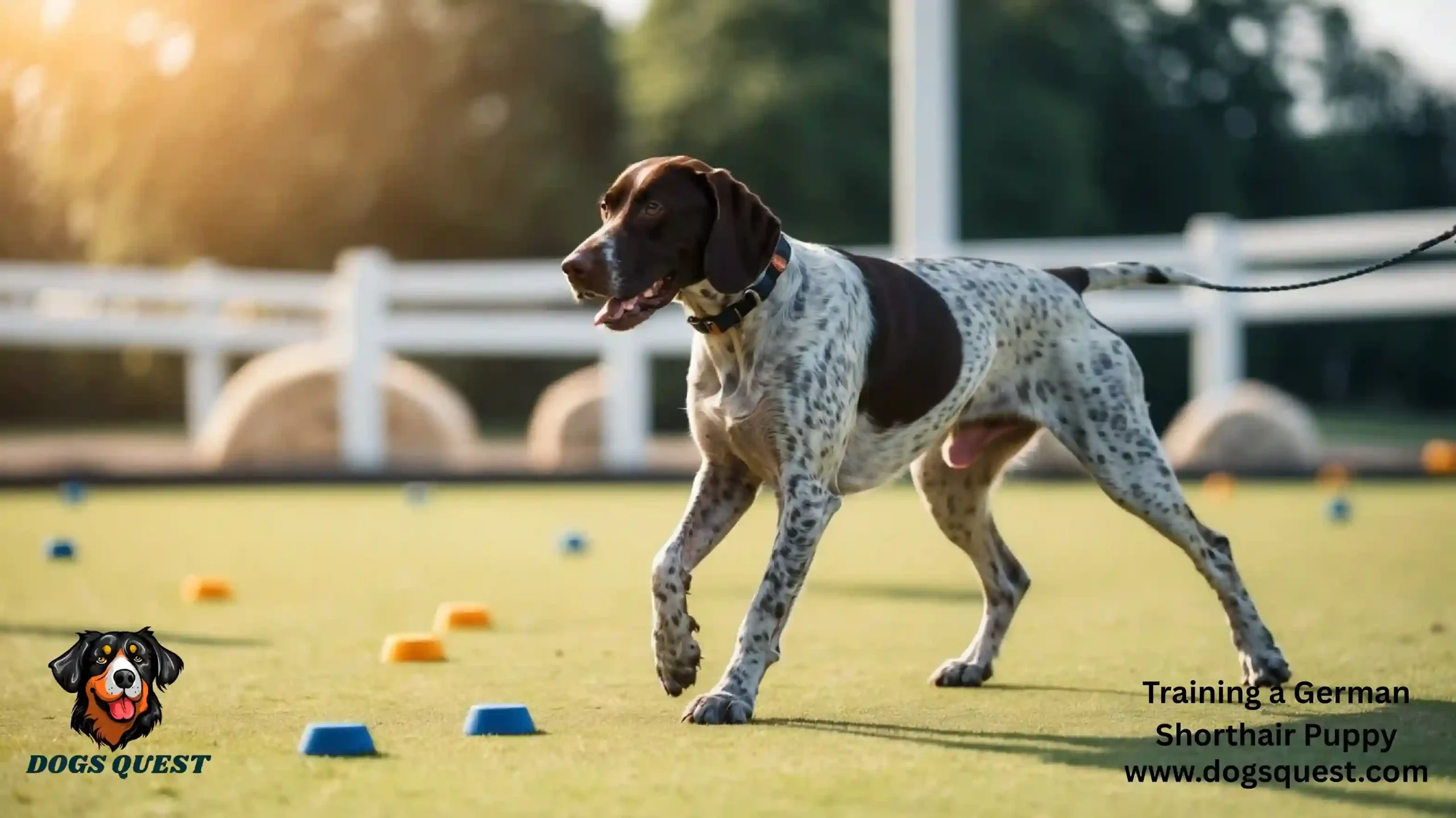Training a German Shorthair puppy doesn’t have to be overwhelming. Discover 10 powerful secrets to raise a happy, obedient, and well-behaved German Shorthair puppy with ease.
Introduction
Bringing home a German Shorthair puppy is an exciting adventure. These intelligent, energetic, and affectionate dogs are eager to please, but their high energy can quickly turn into frustration if not guided properly. That’s where consistent training steps in.
Whether you’re a first-time dog parent or experienced with sporting breeds, training a German Shorthair puppy the right way can make the difference between a chaotic household and a peaceful, joyful bond with your pup. In this guide, we’ll walk through 10 powerful secrets for training a German Shorthair puppy, giving you practical strategies, expert tips, and confidence to raise a well-mannered companion.
By the end of this article, you’ll know exactly how to:
- Understand your German Shorthair puppy’s behavior
- Use positive reinforcement for lasting results
- Prevent common mistakes most owners make
- Build a lifelong connection with your pup
Let’s dive in!
Why Training a German Shorthair Puppy Matters
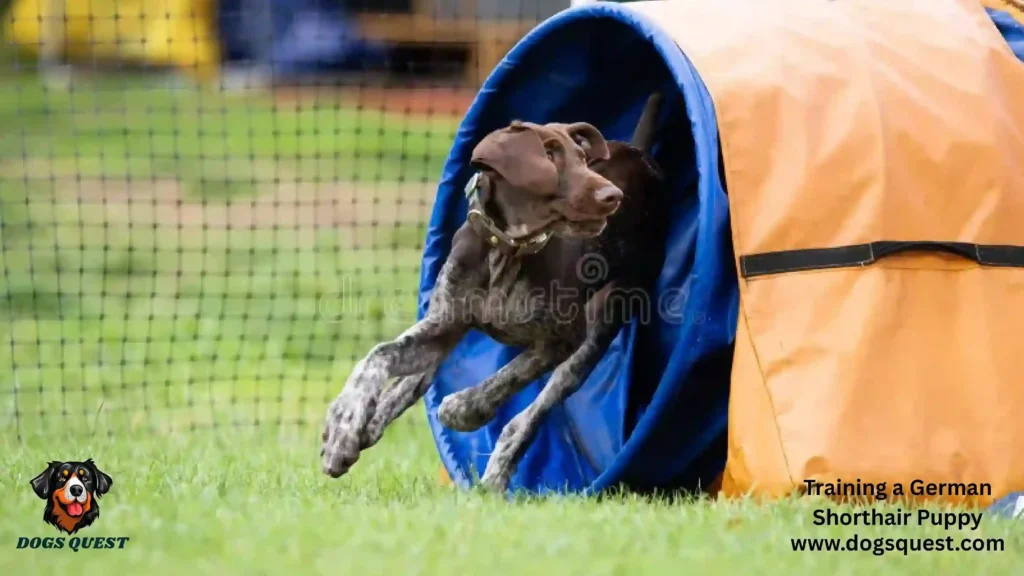
Smart but Stubborn
German Shorthair puppies are incredibly intelligent. They learn commands fast, but their independence and curiosity can make them stubborn. Without early training, they may develop destructive habits.
High Energy Needs
This breed was designed for hunting and sports, meaning they thrive on activity. Training a German Shorthair puppy helps channel their endless energy into positive behaviors.
Family Companionship
When trained properly, German Shorthairs are loyal family dogs. They love being around people, making obedience and manners essential to a harmonious household.
10 Powerful Secrets for Training a German Shorthair Puppy
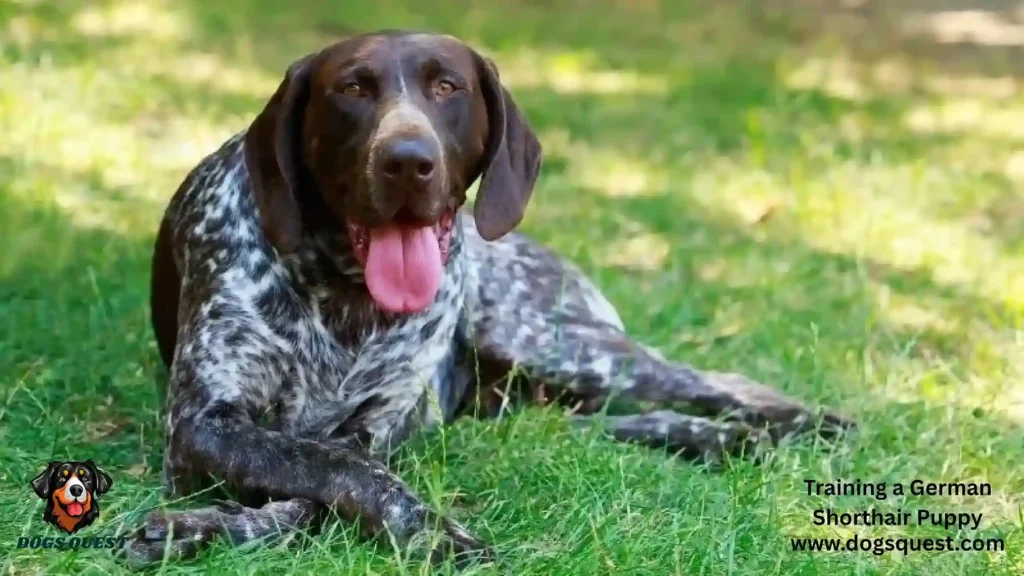
1. Start Training Early
The best time to begin training a German Shorthair puppy is the moment you bring them home. Puppies between 8–12 weeks are like sponges, eager to learn routines and rules.
- Introduce simple commands: sit, stay, come
- Begin crate training for structure
- Establish potty routines immediately
2. Use Positive Reinforcement
German Shorthairs respond best to reward-based methods. Punishment can make them fearful or defiant.
- Reward with treats, praise, or toys
- Keep training sessions short (5–10 minutes)
- End on a positive note to keep them motivated
3. Socialization is Non-Negotiable
A well-socialized pup grows into a confident adult. Expose your German Shorthair puppy to different people, pets, and environments.
- Take them on short car rides
- Invite friends over to interact
- Introduce them to different surfaces (grass, tile, wood)
This reduces the chances of anxiety and aggression later.
4. Channel Energy Through Exercise
If you don’t give your puppy an outlet, they’ll create one — usually destructive. Training a German Shorthair puppy means balancing mental and physical stimulation.
- Daily walks (increasing distance with age)
- Fetch games in the yard
- Puzzle toys for mental stimulation
Remember: a tired pup is a well-behaved pup.
5. Focus on Recall Training
One of the most important lessons for this breed is recall. Their hunting instincts can lead them to chase birds or squirrels, so teaching them to “come” saves frustration and keeps them safe.
- Start in distraction-free environments
- Use long training leashes outdoors
- Reward heavily when they come back to you
6. Consistency is Everything
If one day you allow jumping and the next you scold them for it, your pup will be confused. Be consistent with rules and commands.
- Set household rules (no furniture, or yes furniture — but stick to it)
- Ensure every family member uses the same commands
- Repeat lessons daily
7. Crate Training Builds Independence
Crates aren’t cages; they’re safe havens. Training a German Shorthair puppy with a crate teaches them boundaries and prevents accidents.
- Use the crate for naps and nighttime
- Never use it as punishment
- Gradually increase crate time
This helps with potty training and reduces separation anxiety.
8. Patience with Potty Training
Accidents are part of the process. Patience, not punishment, is key when training a German Shorthair puppy to go outside.
- Take them out after meals, naps, and play
- Praise immediately when they succeed
- Stick to a consistent schedule
9. Prevent Bad Habits Early
Chewing, digging, and excessive barking can quickly spiral out of control if ignored. Redirect unwanted behaviors before they become habits.
- Provide chew toys
- Supervise outdoor play to discourage digging
- Teach “quiet” commands for barking
10. Professional Help if Needed
Sometimes, extra guidance makes all the difference. Puppy classes or private trainers can provide structure and socialization opportunities.
- Look for trainers who use positive reinforcement
- Group classes encourage learning around distractions
- Consider one-on-one help for specific issues
Common Mistakes to Avoid When Training a German Shorthair Puppy
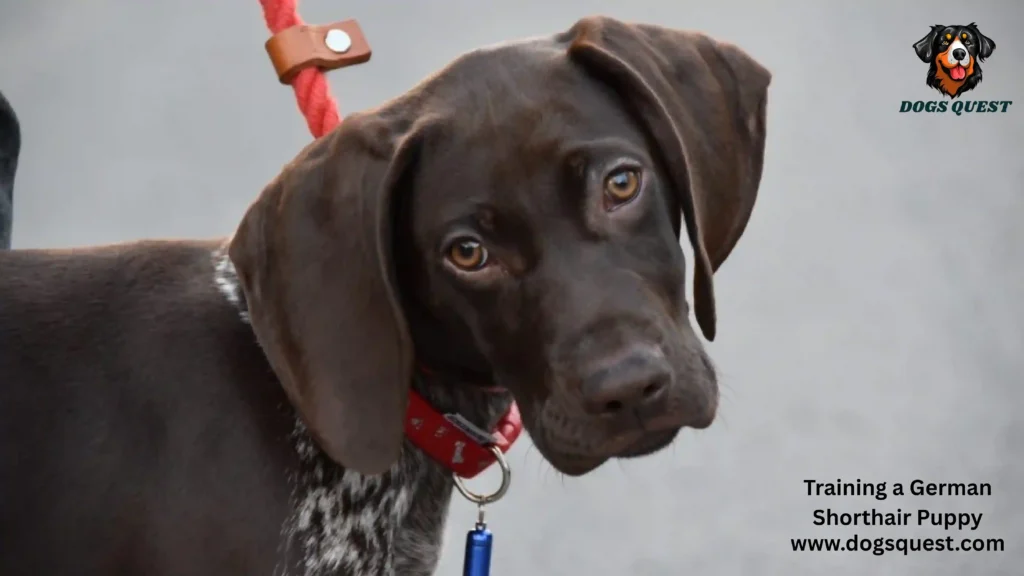
- Being inconsistent with commands
- Skipping exercise, leading to frustration
- Using punishment, which damages trust
- Expecting overnight results — training is a journey
Avoiding these mistakes ensures smooth progress.
Advanced Tips for Training a German Shorthair Puppy
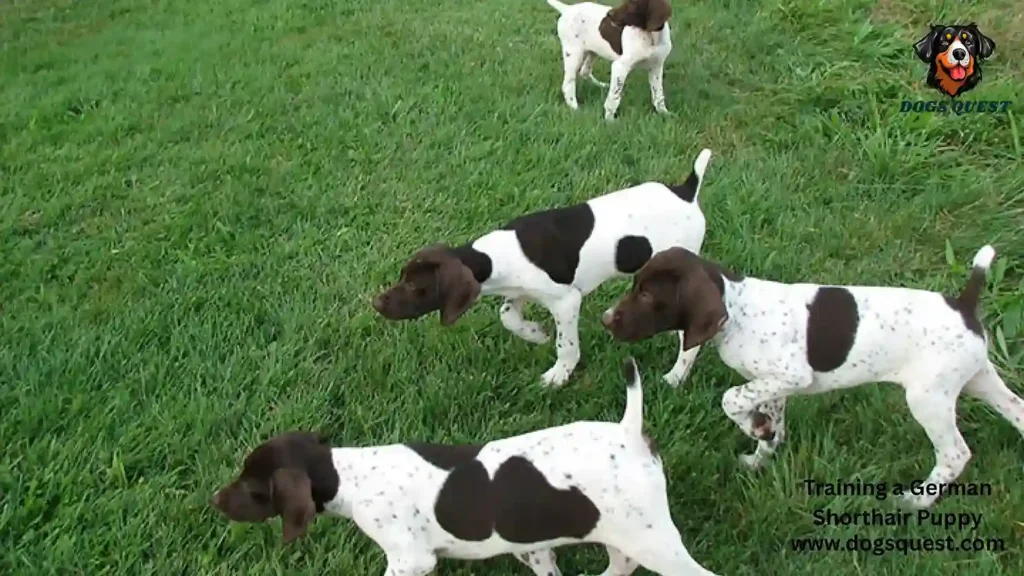
Teach Off-Leash Manners
As your pup matures, practice off-leash training in safe, enclosed spaces.
Build Focus Around Distractions
Gradually increase distractions to strengthen obedience.
Incorporate Nose Work Games
Use their hunting instincts for fun — hide treats or toys for them to sniff out.
Final Thoughts
Raising a German Shorthair is an amazing experience filled with energy, affection, and challenges. With the right strategies, training a German Shorthair puppy becomes an enjoyable bonding journey rather than a stressful task.
By applying these 10 powerful secrets, staying consistent, and being patient, you’ll shape your puppy into a loyal, obedient, and joyful companion for years to come.
FAQs About Training a German Shorthair Puppy
Q1: How long does it take to fully train a German Shorthair puppy?
Basic obedience can take 3–6 months, but training is lifelong.
Q2: Are German Shorthair puppies hard to train?
They’re smart but need consistency. With patience, they learn quickly.
Q3: Can I train my German Shorthair puppy at home?
Absolutely! Most owners succeed with positive reinforcement and patience.
Q4: How much exercise does a German Shorthair puppy need?
At least 1–2 hours daily as they grow, adjusted for age.
Q5: What age should I start recall training?
As early as 8 weeks — the earlier, the better.

